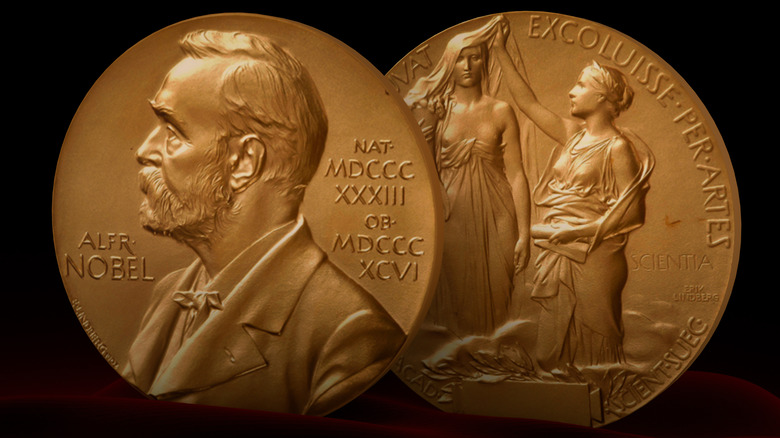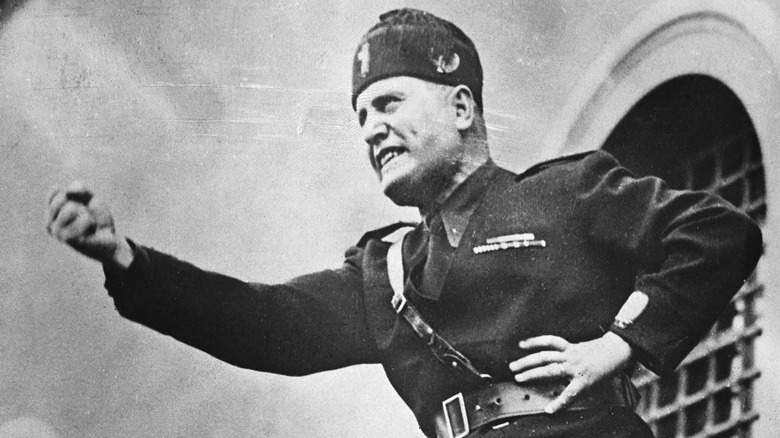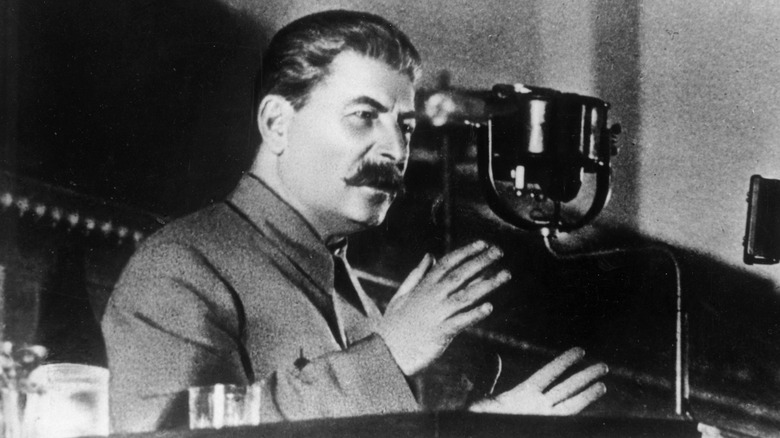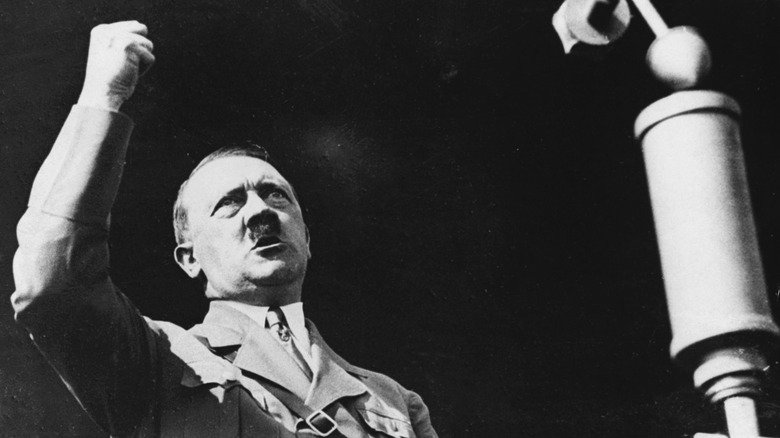These Three Dictators Were Nominated For The Nobel Peace Prize
When President Barack Obama was awarded the Nobel Peace Prize in 2009, the announcement was met with a fair amount of incredulity. Though riding a wave of popularity, Obama was just nine months into taking office at the time of the prestigious award being bestowed on him — The Washington Post called the award "premature" – and many critics saw his win as being nothing more than a rebuttal of the foreign policies of his predecessor, George W. Bush. In 2017, The Daily Beast went as far as to say Obama's prize should be revoked.
But as Noam Chomsky noted at the time: "In defense of the committee, we might say that the achievement of doing nothing to advance peace places Obama on a considerably higher moral plane than some of the earlier recipients." And while the perceived moral failings of previous peace prize winners might certainly be cause for debate — Henry Kissinger received the prize in 1973, even though he had ordered the bombing of Hanoi while a ceasefire was in the process of being negotiated (per CNBC) — the story of the Nobel Peace Prize reads even more strangely when you take into account some of the figures who have previously been nominated, including some of history's most notorious dictators.
Benito Mussolini received two nominations
For many, the name of the Italian dictator Benito Mussolini is synonymous with violence, terror, and heartlessness. Nevertheless, the founder of the Italian Fascist Party, which openly attacked and murdered political opponents even before Mussolini took power in 1922 (per History), was once in the running to be awarded the Nobel Peace Prize, receiving two nominations in 1935, according to War History Online.
By 1935 the world was well aware that Mussolini was no peace activist, but the strange nomination is partly due to the Nobel committee's comparably open manner of receiving nominations. Their official site lists a great number of institutes that a person can be a member of (except the Novel committee itself) while being eligible to vote, while "university professors, professors emeriti and associate professors of history, social sciences, law, philosophy, theology, and religion; university rectors and university directors" may also name a nominee. War History Online claims that the two votes came from European professors, although those documents are missing, and so their reasoning may not easily be ascertained. Mussolini did not make it onto the Nobel committee's shortlist.
Joseph Stalin was nominated in two separate years
It may be unthinkable today that a leader whose actions are now believed to have been responsible for the deaths of tens of millions of his own people (per the New York Review) could be anywhere near the list of potential Nobel Peace Prize nominees. But in fact, Soviet Union leader Joseph Stalin was nominated twice: once in 1945 and again in 1948.
Looked at through the context of world history at the time, Stalin's nominations are perhaps — arguably — understandable. The bloodiest war in the history of the world had just ended, and Stalin's Soviet forces had played an instrumental role in the Allied Forces' defeat of Nazi Germany. As War History Online explains, Stalin's first nomination came from Halvdan Koht, a minister and historian from Norway whose country had been liberated by Stalin's forces at the end of the war. Similarly, Stalin's Nobel nomination in 1948 came from Czechoslovakian professor Wladislav Rieger, who may have put the dictator's name forward as a sign of respect.
With the benefit of hindsight, the fact that Stalin was nominated twice is jaw-dropping. However, like Mussolini, Stalin did not make the committee's shortlist.
Adolf Hitler was nominated on the eve of war
That's right: Someone once nominated Adolf Hitler, the leader of Nazi Germany and the most reviled figure in history, for the Nobel Peace Prize. But this nomination wasn't the work of a Nazi sycophant or sympathizer — in fact, it was something of a joke, albeit it one with a serious point.
In January 1939, Hitler's name was put forward by Erik Brandt, a Swedish politician who intended the nomination to be ironical, according to the Nobel Peace Center. In 1938, Hitler had signed the Munich Agreement with the U.K., France, and Italy, by which Czechoslovakia was ceded to German control. Brandt was one of many who saw this as a betrayal of the Czechoslovakian people, and when he learned that the U.K.'s Neville Chamberlain had been nominated, he decided to nominate Hitler in protest.
"The man who during this dangerous time saved our part of the world from this terrible catastrophe was without no doubt the great leader of the German people," Brandt wrote. "In the critical moment he voluntarily did not let weapons speak although he had the power to start a world war ... the last decision was Hitler's and not Chamberlain's! ... this man is also the hope for peace in the future." Brandt faced an almighty backlash from those who didn't quite share his sense of irony, and he later withdrew the nomination, per War History Online.
Hitler did not make the shortlist. World War II began in September of that year.



